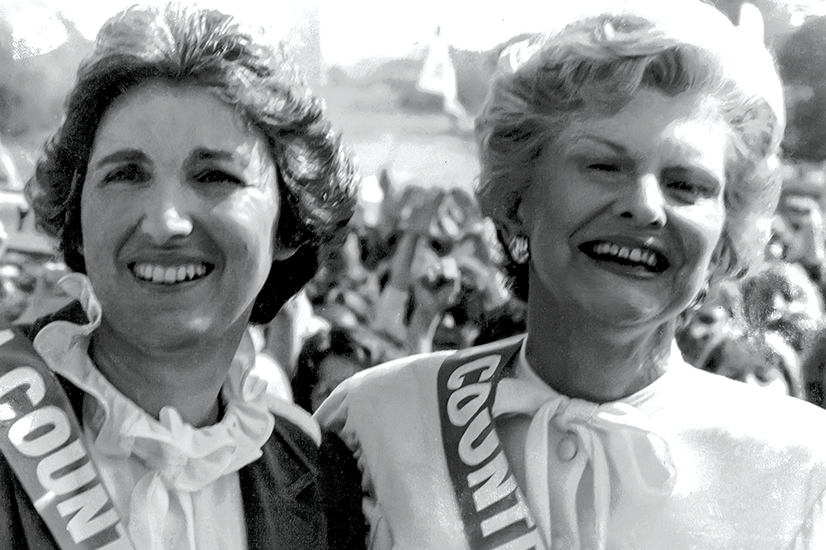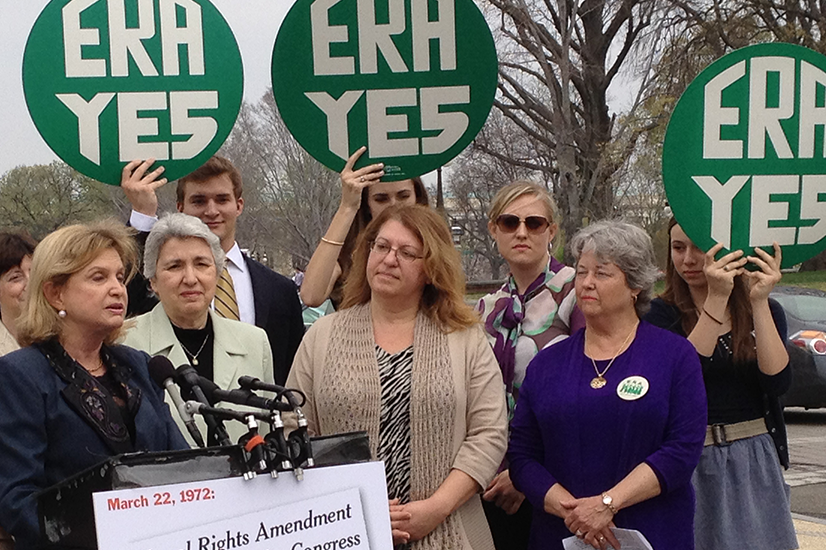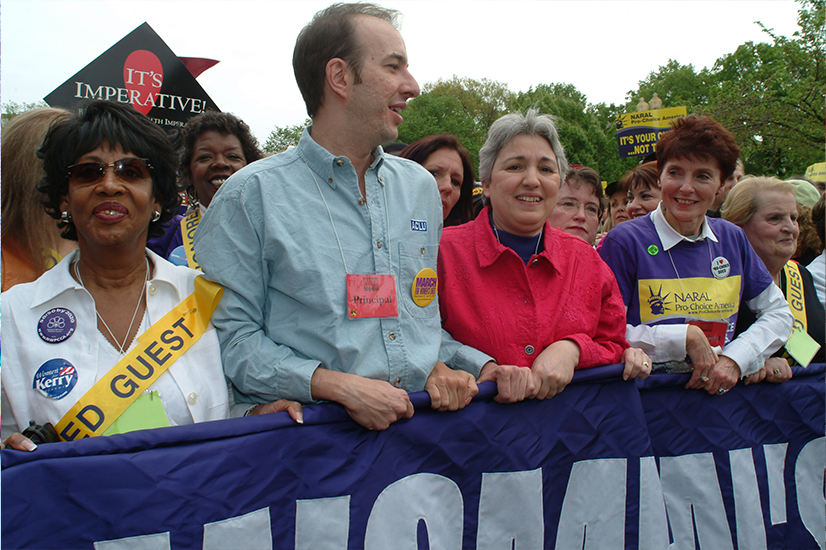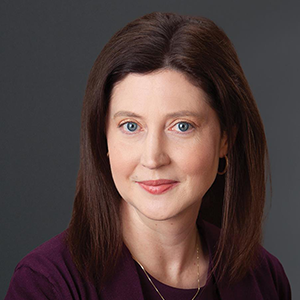Mt. Lebanon housewife turned nationally acclaimed activist

One of the founding feminist leaders in the country began her activism in Mt. Lebanon. Eleanor “Ellie” Smeal described herself as a Mt. Lebanon housewife in the 1960s, although she went on to become the president of major feminist organizations in subsequent decades.
Smeal was born in 1939 in Ashtabula, Ohio, but grew up in Erie, Pennsylvania. She recalls her childhood fondly — as the youngest of four and the only daughter, her parents encouraged and supported her passions. Her mother often said “If the boys can do it, Eleanor can do it too.” Yet, gender discrimination outside of the family home remained pervasive. Women’s interscholastic sports were rare and Ivy League colleges excluded women. Smeal’s high school principal insisted that she attend secretary school, even though she expressed interest in politics and college from a young age. “He told me, ‘American girls don’t go to college.’ I went home crying, and my mother said, ‘don’t listen to him.’” After graduating high school in 1957, Smeal earned her bachelor’s degree in political science from Duke University, followed by a master’s degree in political science and public administration from the University of Florida.
Smeal moved to the South Hills of Pittsburgh in 1967, with her husband, Charles, and two children, Lori and Todd — first to Upper St. Clair, then Bethel Park. Smeal wanted a more challenging and engaging education for her children, so she called every school district in the area to find the best fit. It wasn’t long before the family moved to Sunridge Drive and her children attended Mt. Lebanon schools.
During this time, Smeal was a self-declared housewife, a descriptor people in social justice circles weren’t fond of, she said. “They kept telling me most women wouldn’t like that,” Smeal noted. She was heavily involved in her children’s lives, while also branching out in issue-based organizations.
“One thing I learned in Mt. Lebanon, was the importance that my own kids understood what was going on, from a young age. Because I did bring them to a lot of things. It helps them; it helps you. You’re fighting for the future generations.”
First, she joined environmental groups that worked on air pollution, then served as secretary for the League of Women Voters, where peers encouraged her to join the National Organization for Women (NOW) in 1970. “That pretty much changed my life,” Smeal said.
NOW is the largest grassroots, activist movement for women’s rights in the U.S. After New York and Los Angeles, Pittsburgh was the next chapter of NOW to form in 1967. The organization now has more than 600 chapters.
“They were doing the most exciting stuff,” Smeal recalled. Early causes included: hiring more women in the Pittsburgh Bureau of Police, pay discrimination at the Pittsburgh Press and the exclusion of girls from youth sports. None of the NOW organizers were attorneys, but that didn’t stop them from helping bring discrimination cases all the way to the U.S. Supreme Court. One such case was Pittsburgh Press Co. v. Pittsburgh Commission on Human Relations (1973). At the time, the newspaper printed employment opportunities but categorized them by gender. The court ruled against the Press, effectively shutting down the discriminatory job listings.
The Equal Rights Amendment (ERA) — a proposed constitutional amendment that guarantees legal equality for all genders — was NOW’s central focus for many years. Smeal and others promoted the ERA at state and federal levels, which Pennsylvania ratified in 1971. She organized rallies, demonstrations and media coverage across the state. In the ’70s, “It was one victory after another,” she noted.
Smeal quickly rose through the ranks of NOW. She joined the national board in 1973, succeeded to board chair two years later and was elected President of NOW in 1977, where she served three terms.
Her children were in high school when the Smeals made the difficult decision to leave Mt. Lebanon for Washington, D.C. In the capitol, she worked with women’s abolitionist Alice Paul and other foundational feminist movement leaders to pass the federal ERA. In 1982, the amendment failed adoption to the U.S. Constitution; the ERA was three states short of the 38 needed for ratification. It was a shocking blow to feminist organizers across the country. “We were very optimistic,” Smeal said. “Who knew we would get stuck? It’s (the ERA) needed more today than ever before.” But still, ERA efforts brought gender equality to the forefront of national conversations and showed that “Women have accomplished great things. We’re not a footnote,” Smeal said.
After years of focusing on ERA ratification, NOW shifted focus to reproductive healthcare. Violent attacks on abortion clinics were happening more frequently, so NOW members used their bodies to physically protect the healthcare workers and patients at the facilities. Many volunteers were injured in the process. Interested in researching ways to stop the violence, Smeal co-founded the Feminist Majority Foundation (FMF) in 1987. The National Clinic Defense Project was FMF’s first large scale effort to reduce violence. FMF leaders conducted intensive surveys and measured levels of violence, while mobilizing tens of thousands of volunteers to protect healthcare workers and patients. The endeavor is still active today, under a new name: the National Clinic Access Project.
When FMF began, women made up only 3 percent of Congress. Today, that number is 30 percent, which “didn’t just happen on its own,” Smeal said. It’s a much different landscape compared to the ’50s and ’60s, she said. “When I went to school, if someone [a woman] said they wanted to be a senator, someone would say ‘What’s wrong with you?’” Gender parity in Congress should be much closer than it is, but feminist movements are no longer on the fringe, said Smeal. She calls it a “majority movement” and expects the gender gap will continue to shrink.
At 85, Smeal remains active as the president of FMF. The most pressing domestic issues on her plate today include environmental justice, reproductive rights, LGBTQ rights, the gender wage gap and continued momentum for equal rights. She hopes people of all ages continue to be involved in public service and their community.
“It enriches your life to be active in your community. It has enriched ours and our children’s. It has a positive impact. If you see something wrong, say something. And if you say something, do something.”








